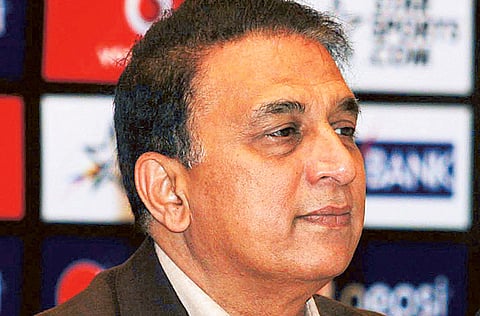Sunil Gavaskar bats for controversy-free IPL
Interim Indian cricket board chief Gavaskar outlines his hopes for T20 league’s UAE bow

Dubai: The foremost item on the wish-list of Sunil Gavaskar, the interim President of the Indian Cricket board, for the seventh edition of the Indian Premier League (IPL) is that it should be remembered for the cricket only.
“After the final on June 2, I want people to remember it for the quality of competition and nothing else,” said the Indian batting legend in Dubai on Wednesday.
In his first press conference after taking over his role overseeing the IPL last week, the former India skipper did not shy away from the predictable bouncers aimed at him on the controversies plaguing the league, but hoped the forthcoming edition would see a turnaround in the league’s sullied image.
“I am deeply humbled at the Indian Supreme Court’s directive to appoint me in this post and I want the league to be as controversy-free as possible,” he said.
Despite being one of the top global sporting brands since its inception in 2008, IPL VII was plunged into uncertainty when, as late as March 25, the apex court in India wanted the incumbent president of the Board of Control for Cricket in India (BCCI), Narayanaswamy Srinivasan, removed.
It also wanted to ban two of the teams under the scanner for the team owners’ alleged involvement in betting and match-fixing, Chennai Super Kings and Rajasthan Royals. The Supreme Court suggested Gavaskar should take over as interim boss of the BCCI, which he readily accepted to ensure the league can be conducted as per schedule.
The first hearing on the case has now been postponed to April 16, the day reigning IPL champions Mumbai Indians and Kolkata Knight Riders will set the ball rolling for the UAE leg of the event, though the league has earned a reprieve for now.
Should the two teams be allowed to take part in IPL VII, though?
Gavaskar replied: “It’s the Supreme Court’s decision and we abide by it.”
Asked about his primary concerns about the UAE leg of the IPL, Gavaskar said if the ongoing controversy is one, the state of wickets of the three venues in Abu Dhabi, Dubai and Sharjah, along with practice facilities for the teams, is another.
“The local police and International Cricket Council authorities have ensured their cooperation,” he said, his views endorsed by Omar Al Askari, director of Emirates Cricket Board. “Special attention is also being paid to keep any unscrupulous elements at bay,” the ECB official said.
“I have stressed the need of good wickets in all three venues as it’s the pre-requisite for a good contest.”
Does the IPL then, with its ironic mix of popularity and legacy of controversies, need to rebuild the brand all over again?
Expressing confidence that cricket will once again take centre stage as soon as the first ball is bowled, an optimistic Gavaskar said: “Let’s hope the IPL 2014 can work as a springboard for the future editions.”


